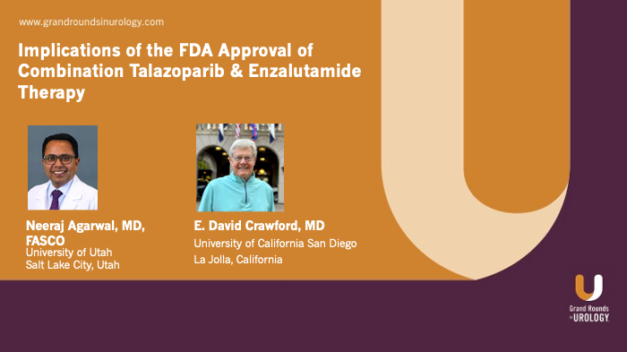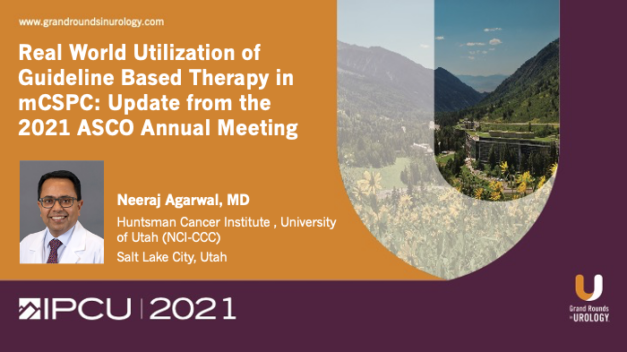Implications of the FDA Approval of Combination Talazoparib & Enzalutamide Therapy
Dr. E. David Crawford and Dr. Neeraj Argawal, MD, FASCO, discuss the recent FDA approval of Enzalutamide combined with Talazoparib. In this discussion, they examine a Phase 3 trial comparing Enzalutamide and Talazoparib versus Enzalutamide alone on mCRPC patients.
The results of the trial yielded significant differences in the outcomes between the Enzalutamide and Talazoparib combination arm and the Enzalutamide-Only arm. 37% decrease in the risk of progression or death was observed in the combination arm of the trial. In patient populations with tumors containing HRR mutations, the risk of progression or death was decreased by 55%.
Following its recent FDA approval, Dr. Crawford and Dr. Argawal discuss the clinically appropriate populations for Enzalutamide and Talazoparib combination therapy, the process of diagnosis, and the limitations of the therapy. Dr. Argawal emphasizes the necessity of germline testing in identifying predispositions to mCRPC patients and their families.
Dr. Crawford and Dr. Argawal conclude by examining the time to PSA progression in the two trial arms. In the Enzalutamide-Only arm of the trial, average time to progression was 11 months, whereas time to progression in the Combination arm was 28 months. They recognize that the overall survival data is immature at this time, but recognize that short-term benefits of combination therapy for this patient population are significant across the board.
Read More

